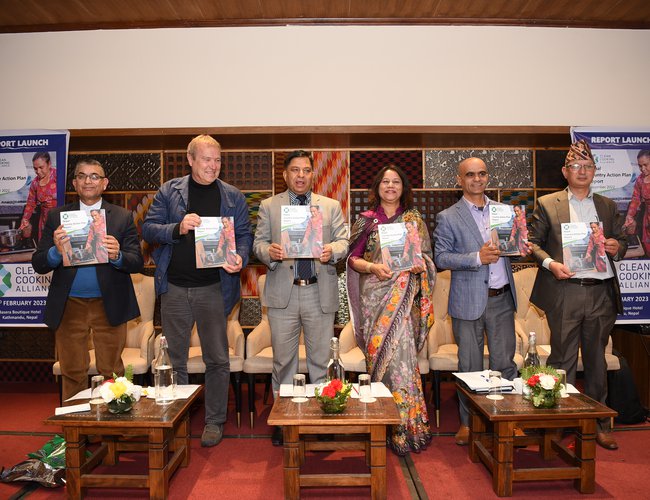
The head of the Alternative Energy Promotion Center, representatives from CCA, Development Partners, INGOs, and NGOs jointly launched Nepal Country Action Plan (CAP) 2022 on Thursday, February 1. As a result, Nepal is now on the right track to continue its clean cooking campaign, which aims to replace the use of dirty biomass and LPG with clean hydroelectricity.
Despite the fact that cold weather has decreased Nepal's hydroelectricity generation recently, Nepal will have a big hydroelectricity surplus starting in April and May. The publication of CAP with specific objectives and a plan of attack to promote electric cooking is pertinent in this situation.
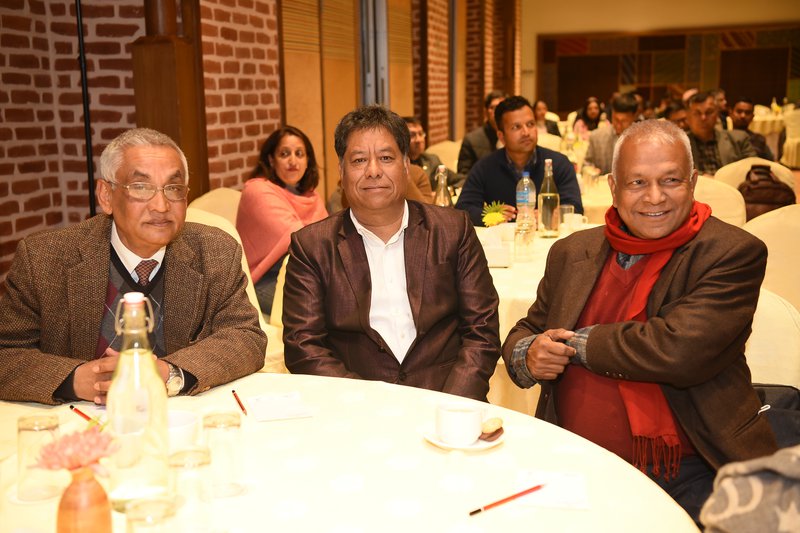
To implement clean cooking in Nepal, the problem currently is to handle more than Rs. 60 billion. The topic of finances and funding will be highlighted as two top officials from prominent development partners EU and USAID visit Nepal.
Dr. Madhusudan Adhikari, executive Director of AEPC, said,"the creation of CAP in close partnership with CCA and AEPC and launched is a big step towards spreading electric cooking throughout Nepal and attaining Nepal's aim. By 2022/023 electric cooking stoves, the CAP intends to give every home access to electricity. The government of Nepal can use this CAP as a clear road map to launch and expand a clean cooking program.”
Nepal has already said that it intends to achieve clean cooking by 2030, including making sure that 25% of homes have clean energy by 2045, which is a step up from the current promise. Nepal hasn't, however, made any significant progress in that direction.
Despite the speeding up, more than 68% of families still cook with conventional biomass including wood, agricultural waste, and animal dung. In urban and semi-urban areas, LPG is the most used fuel for cooking in homes. Over Rs. 60 billion worth of LPG was imported into Nepal last year, according to Nepal Oil Corporation, helping the country's balance of payments.
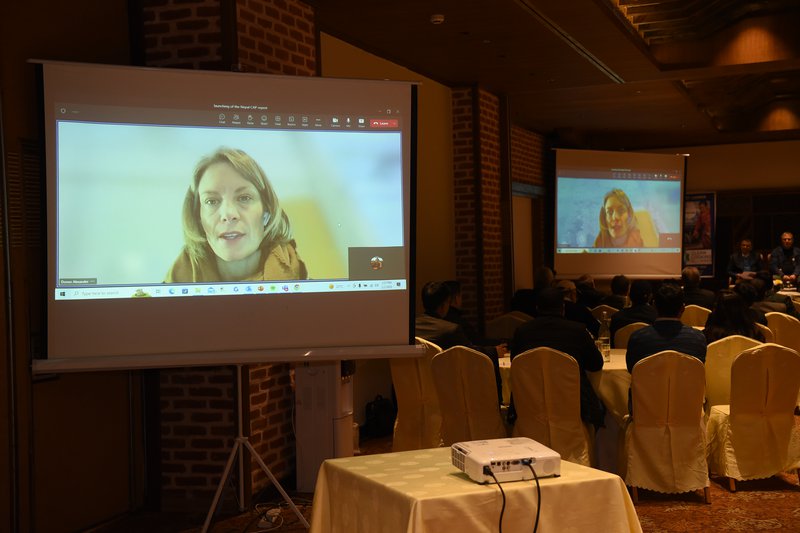
The supply of electricity is dependable now that a number of hydroelectric projects have been completed as well as the strengthening and expanding of transmission and distribution lines. Given all of these factors, now is the ideal time to switch to electric cooking in order to save on both traditional and imported energy.
"For the promotion of electric cooking in Nepal, this is a significant event. The Country Action Plan (CAP) for Transforming the Cookstoves and Fuels Market in Nepal was developed by the CCA in close cooperation with the Alternative Energy Promotion Centre (AEPC)," said Karuna Bajracharya, country manager CCA Nepal, in her opening statement.
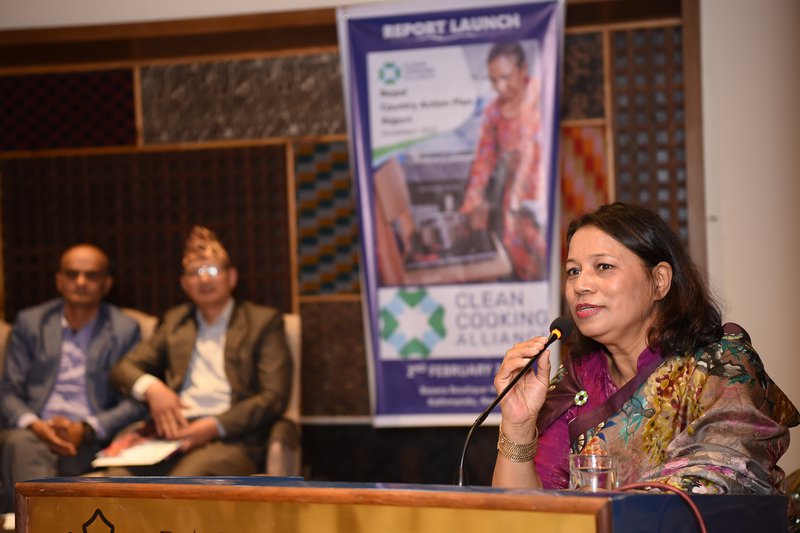
According to her, the CAP offers the Nepali government a clear, strategic, and fact-based roadmap along with a prioritized list of interventions that can be put into practice to support Nepal's goals for energy access, particularly those that are connected to the promotion of electric cooking.
“These top priorities focus on electricity, biomass or are fuel agnostic suitable to electricity, biomass and other clean cooking fuel sources."
A market-based road map for promoting clean cooking in Nepal is provided by the CAP. To make sure that the CAP is in line with the objectives and initiatives of the Nepali government, the CCA has collaborated closely with the AEPC and, later, the National Planning Commission (NPC).
"The creation of the CAP offers the Nepali government a crucial road map for speeding the expansion of clean cooking across the nation. A practical and comprehensive CAP is designed by AEPC and CCA in close collaboration with the Ministry of Energy, Water Resources and Irrigation, the National Planning Commission, and other pertinent government and non-government stakeholders,” said Dr. Adhikari, the executive director.
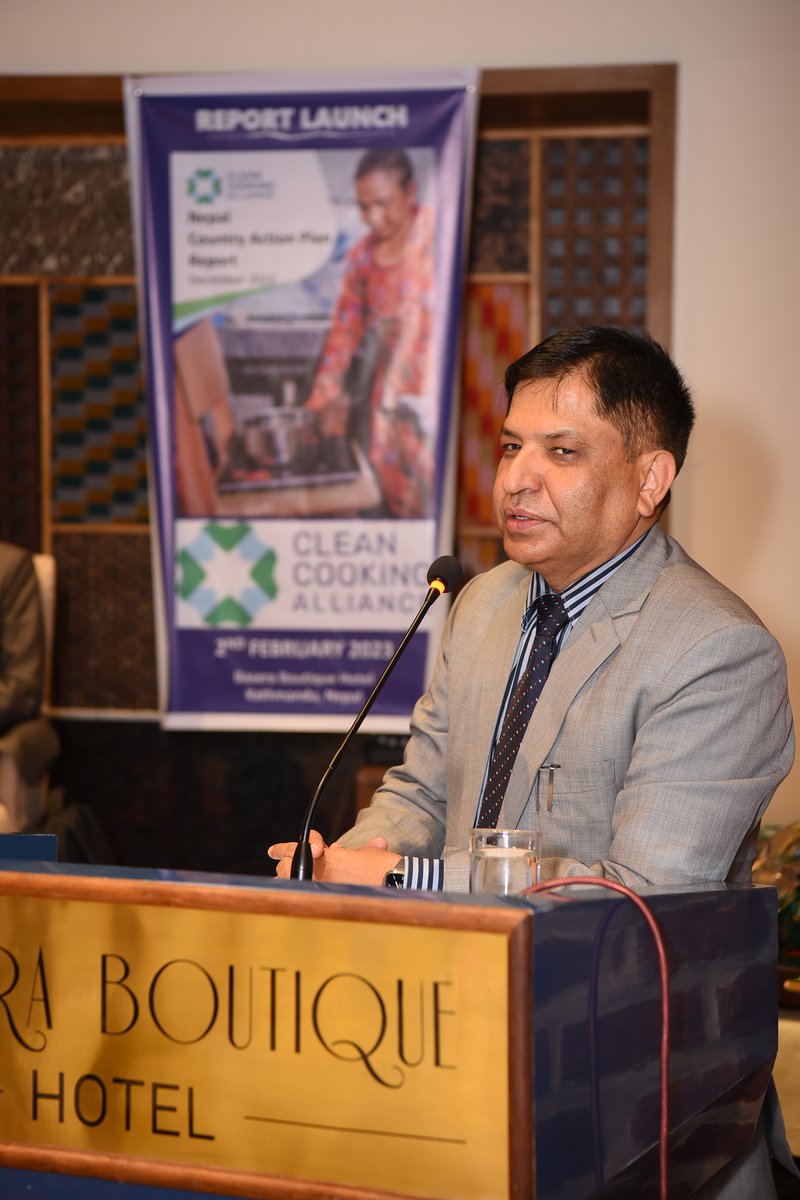
“A market-based road map for promoting clean cooking in Nepal is provided by the CAP. The CAP in particular: CCA has done a lot of work.It's an exciting time for us since the CCA and the AEPC created this Country Action Plan (CAP) to act as a strategic and practical roadmap for changing the cookstoves and fuel market in Nepal, particularly those releases that promote electric cooking. When creating CAP, the National Planning Commission offered invaluable assistance,” said Bajracharya.
The CAP was incorporated into the country's energy policy and customized for Nepal. In order to get comments and buy-in, CCA also offered the CAP draft to important stakeholders, including municipal and provincial governments.
In her opening remarks, Bajracharya, Country Manager – Nepal, said,” CCA and AEPC developed the CAP based on a rigorous methodology, consultations with partners, key insights from CCA-commissioned foundational research, and various activities by partner organizations in Nepal."
According to Bajracharya's the methodology toward designing the CAP was outcome-oriented, identifying critical, practicable, and desired activities to accelerate Nepal's large-scale transition to cleaner cooking options.
Electric Cooking Campaign
The major global fossil fuel crisis brought on by the Russian invasion of Ukraine pushed Nepal to the verge of economic collapse. The speed of the campaign is too slow, despite the fact that CCA has been working in Nepal since 2018 and offering customized support to help Nepal realize her lofty clean cooking access targets.
It has been a busy and emergency-filled year in Nepal throughout the past year. Due to the increase in fossil fuel prices, Nepal has a tough time obtaining foreign exchange to import LPG and sell it at a subsidised price. As a result of a serious supply crisis, the government announced that LPG would be replaced by electric cooking. The administration, however, lacks a strategy and action plan to carry out its obligations.
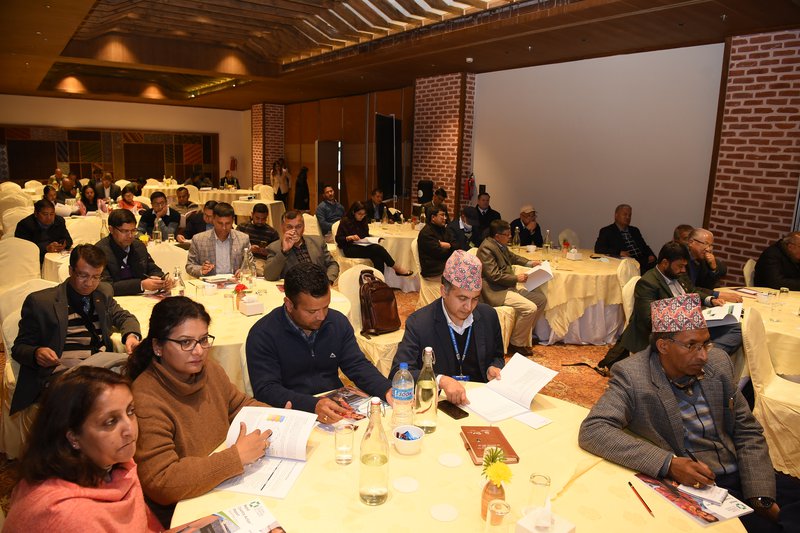
Here comes CCA, which works to support Nepal in quickening the scale-up of cooking across the nation and bringing about long-term effects on the environment, climate, livelihoods, and health.
Policy expert Mohan Das Manandhar, Purushottam Ghimire, and former National Planning Commission member Professor Surendra Labh Karna participated in a number of promotional campaign meetings at the province and municipal levels with the assistance of CCA Country Manager Karuna Bajracharach.
These sessions also aided in understanding the current condition of electric cooking as well as the policies, strategies, and initiatives of the province and local governments in this area.
Clean cooking, particularly electric cooking, is essential to achieving Nepal's lofty goals and commitments to combat climate change and simultaneously achieve universal energy access.
The CAP, which was created collaboratively by the CCA and AEPC and contains 73 pages, will operate as a strategic and practical roadmap for changing the cookstoves and fuels market in Nepal to one that is focused on promoting electric cooking.
CCA pledges to support the campaign by cooperating on several levels with the National Planning Commission, AEPC, INGOs, NGOs, and the commercial sector.
Launching of CAP
Long-running electric cooking projects in Nepal have included CCA. Supporting the development of strategy and action plans by the Nepali government, AEPC, and other stakeholders.
"CCA has been promoting clean cooking in Nepal to advance the SDGs on a larger scale. We have been formally involved in Nepal since 2017 and have started a number of activities there. One program that shows how clean cooking can maximize health benefits has already been finished. We advocated electric cooking and biogas.”
People use electric stoves instead of LPG. This shift is effective. But when I read this research that said LPG is pure, I responded. That is untrue. According to a recent American study, LPG also emits harmful pollutants. I'm pleased to report that Nepal is making progress in the clean cooking initiative, according to Jan Erik Studsrud, Counselor for Energy and Climate at the Royal Norwegian Embassy in Kathmandu.
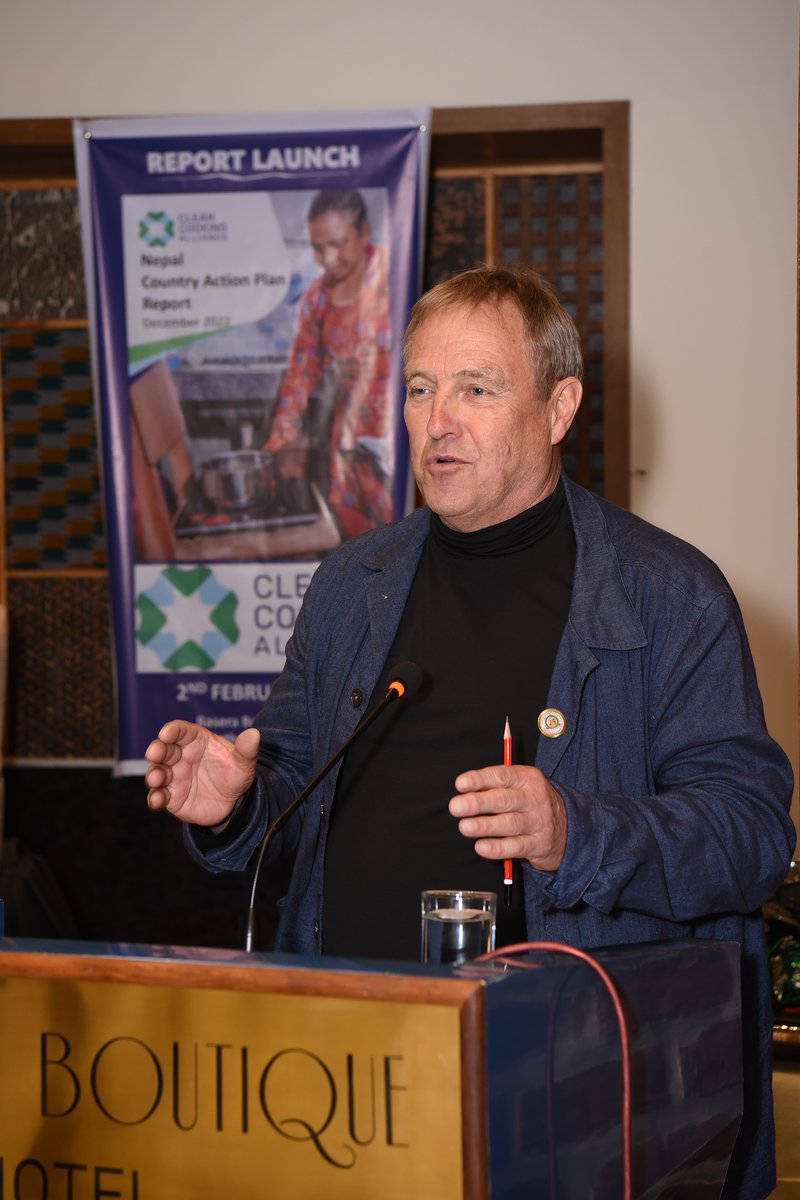
"After starting a two-year program in 2017, we learned about household concerns and their needs. Furthermore, we are now aware of the fundamental disadvantages of electric cooking. Household wiring is still a major issue. Other obstacles to promoting electric cooking include funding and a lack of nearby maintenance facilities. Cooking stove warranty replacement needs to be encouraged at the municipal level, according to Bajracharya.
"When I first arrived in Nepal in 1987, I visited Sauraha, where locals cook over open fires using wood from the surrounding forest. We came here to do study on using wood for fuel. The forest was still there a few years later, but no one was utilizing it for fuel anymore. LPG, wood, and biomass are no longer used as fuel sources.”
Winrock International's country director Badri Baral and a counselor from the Norwegian Embassy both consider CAP to be a significant accomplishment. "Many thanks to NPC and CCA for bringing the report on the Nepal Country Action Plan. We completely understood the significance of healthy cooking in the nation. The use of LPG has an impact on the balance of payments and trade deficit. We wholeheartedly concur that cooking clean is important for both the environment and one's health. Electric cooking will henceforth be the main source of clean cooking. Numerous interventions with advantages to both health and the economy are available, ranging in size from small to greatest. Numerous academic institutes have conducted studies demonstrating the economic and health benefits of clean cooking methods like electric cooking,” said Baral.
"Numerous interventions and efforts, some of which were also launched on a commercial basis, have been made. Through a market-based strategy, we have already agreed to adopt 65000 electric cooking stoves. A plan to provide households with 15000 cooking stoves is also in the works. INGOs and other parties have also made interventions. I can only confirm that the nation is moving in the right direction."
Nepal Country Action Plan, which compiles all the information and identifies any gaps, has finally been made public after a protracted effort. The paper identifies what should serve as a road map for attaining the goals set forth in the 15 five-year plans, the NDC, and the SDGs.
The nation's action plan is concentrated on energizing and speeding the market to meet the goals established by the SDGs and NDCs. Given that Nepal's electric market is still in its infancy, the attention paid to it is reasonable. To speed up the market, a lot of work is required. The fact that CAP has offered a clear road map for clean cooking is one of the crucial features of the program.
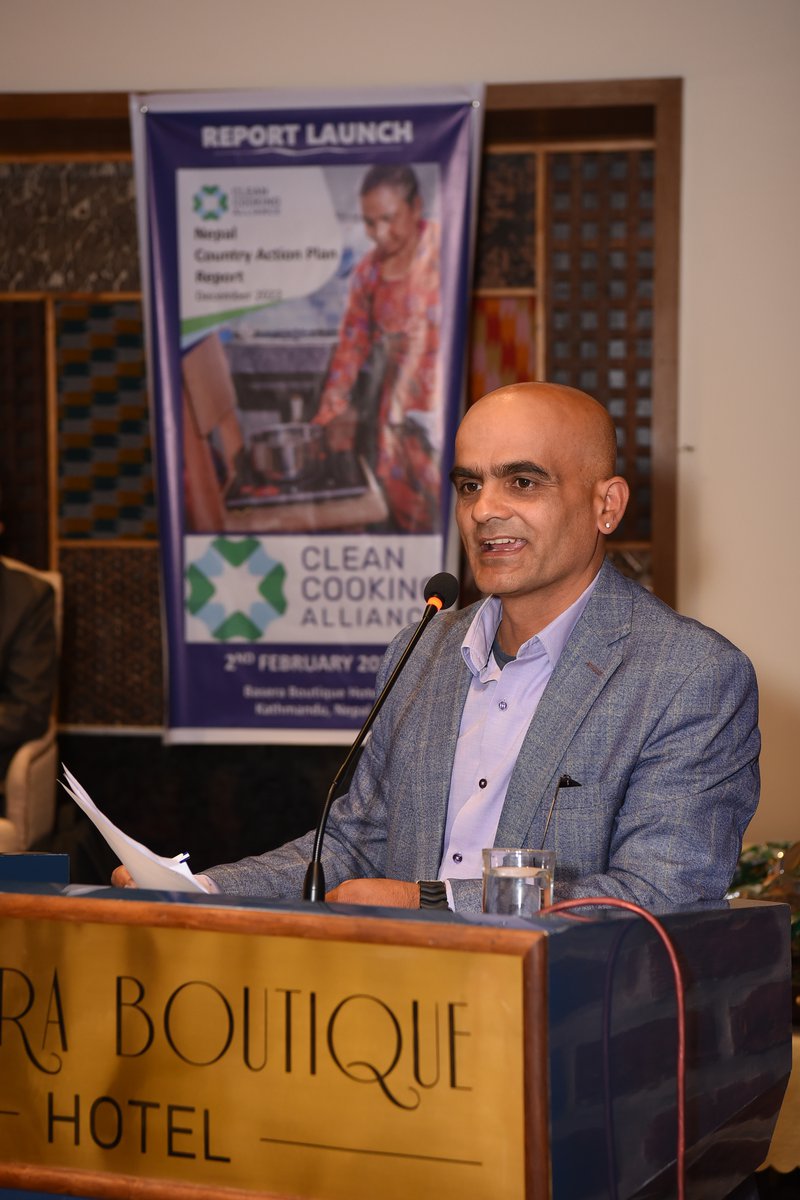
"First and foremost, I want to express my gratitude to CAA and Alternative Energy Promotion Center (AEPC) for creating this superb paper to support clean cooking in Nepal. With the help of this practice, we can now promote healthy cooking. With recent expertise in electric cooking, CAP concentrates on energizing and advancing the industry with the goal of boosting access to over 20%. We are discussing the market's activation. Electric cooking is currently used by 2.5% of urban residents; this percentage needs to rise by 20%. Innovation is needed for acceptance "said Subarna Kapali, the Ajummery Bikas Foundation's executive director.
The CAP also has a road map for the next 10 and 20 years. The CAP initially focuses on the urban market because it is essential to national expansion. The four areas of action suggested by the CAP center on supply and demand.
"Consumer and license are one of the intervention sectors that the report has targeted. "We must first comprehend how consumers behave. Our understanding of consumer understanding has already grown. Anjumari Foundation finished the research to comprehend the early adaptor with help from CCA, according to Kapali.
A study on the market for electric cooking was also carried out by Practical Action. A number of other organizations have also conducted studies of a similar nature. Through the participation of partners in the development sector, studies have already been completed.
"Since the private sector may play a significant role in market expansion and exploration, the private sector should participate in and be involved in the new study. However, it is crucial for the private sector to comprehend the market from the point of view of development practitioners. These three factors—who the customers are, what their options are, and the location of the market—are all crucial. Manufacturers, importers, and suppliers should all be actively involved in the effort. We should involve the private sector while discussing further research. Understanding the current situation and future direction of the market is the responsibility of the private sector. Their client is who? customer perceptions about electric cooking."
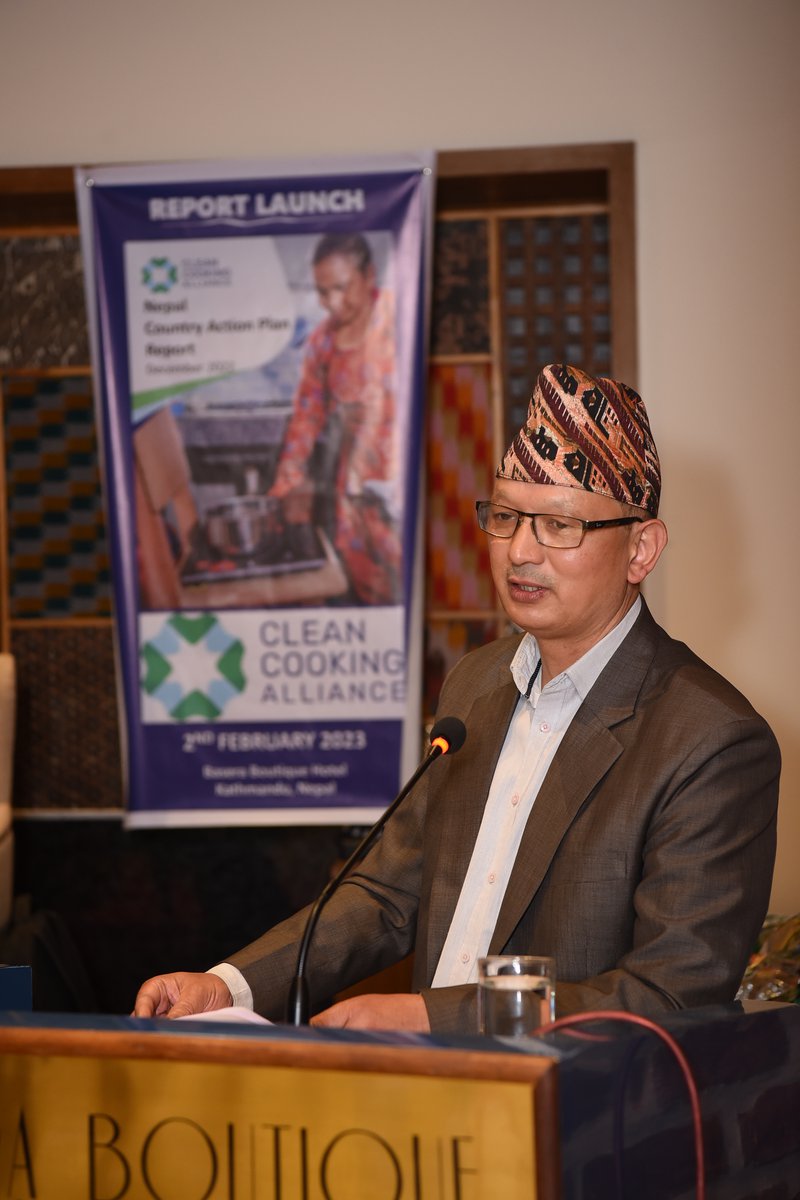
"Manufacturers, suppliers, and distributors ought to conduct more research. They ought to be involved in the planning and execution of the research. Additionally, CAP recommended raising public awareness. That is vital information. In terms of raising awareness, I think it's important to cover all facets of clean cooking and stoves so that consumers can make educated decisions about what to buy and how to cook. This needs to be done step-by-step, and our awareness campaign needs to be focused from that angle, "added Kapali.
"We require interpersonal awareness in addition to general awareness. The private sector must be included in public awareness efforts as well. We have discovered that the suppliers are now willing to help spread awareness. When we celebrated National Cooking Day last week, the commercial sector demonstrated interest in the industry. They also provide financial support. It is not about a certain brand, but more about clean cooking options and electric cooking. They wish to manufacture their goods, and customers are familiar with the brand. It is possible if clean cooking is at the core of the answer. A transition from an urban to a semi-urban setting was also highlighted in the plan. Consumers must make a decision. There are also some projects in rural areas. We can continue working in rural areas. We may carry on with our efforts there as well. We need an alternative strategy because the market method won't currently function in rural areas."
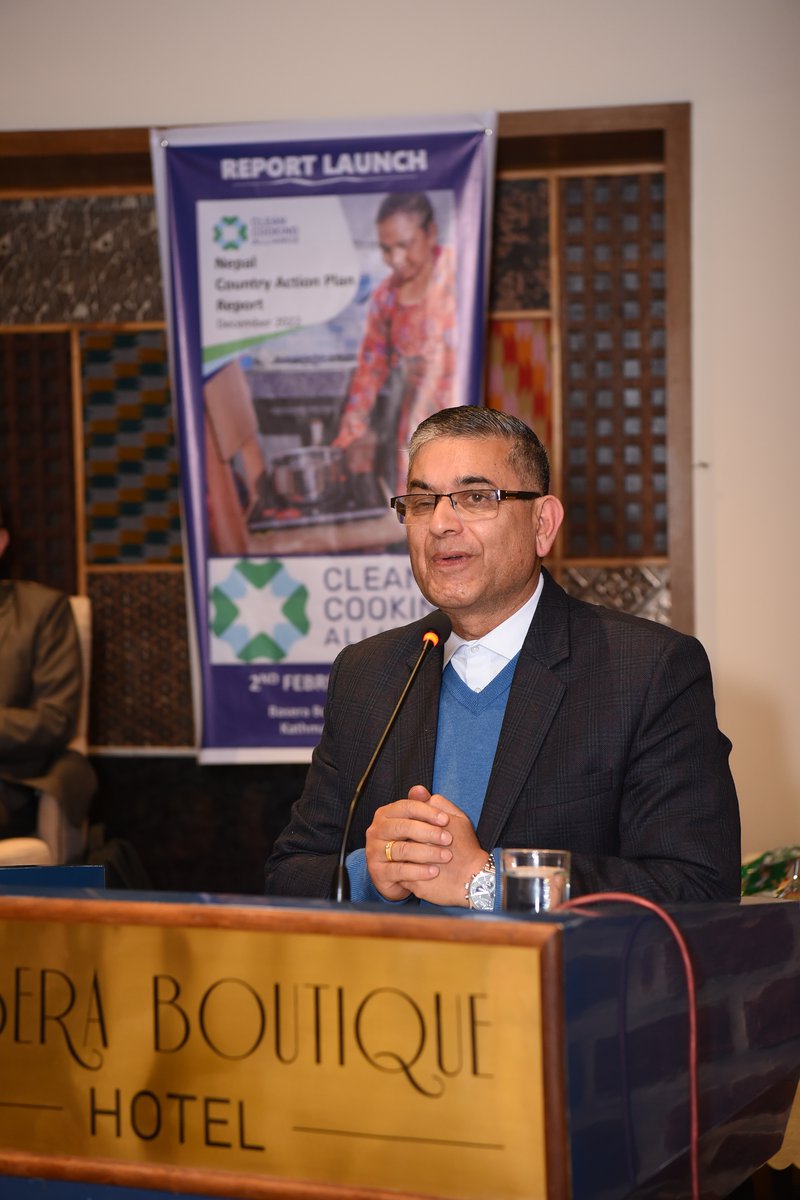
The need for the extension of supply networks in semi-urban and rural areas has also been eloquently stated by CAP. The supply chain has been run by large business organizations in cities. It does not, however, apply to rural and semi-urban areas. There is a significant gap in the supply chain network, and vendors of kitchenware should be one of the possible providers in semi-urban areas. Other potential sources are women's business associations. Women entrepreneurs in Nepal have a track record of success in the microhydro and solar supply chains. Here, this is applicable. That possibility exists in this situation as well. By supplying a working cash gap, we must assist them in managing their firm.
Financing is a crucial factor in rural and semi-urban areas. There are several investment hazards in rural and semi-urban locations. As a result, another sector should enter the market. In order to promote electric cooking, a group like the National Association of Community Electricity Users-Nepal is crucial.
"I want to thank CCA and AEPC for releasing CAP first of all. With a clear road map in hand, we can now advance the cause of electric cooking. Our group, which has more than 600,000 members, can significantly contribute to reaching rural areas, "said the National Association of Community Electricity Users-Nepal Chairman Narayan Gyawali remarked.
In order to advance the electric cooking campaign, he declared that the association is prepared to collaborate with CCA, AEPC, the government, and other stakeholders. Nepal requires both the participation of the private sector and financial assistance from development partners to accomplish this.

Having a country action plan, which is primarily owned and carried out by the government and partners, is crucial at this point for Nepal. This was developed after a thorough consultation process involving all relevant parties. We have also evaluated the electrical systems in place for electric cooking. After this was published,
After CCA and AEPC released CAP, the nation was prepared for electric cooking. Given the strong infrastructure for electric cooking, NEA is spending a lot of money to enhance transmission and distribution. It is now appropriate for Nepal's two major development partners, USAID and the EU, to support a clean cooking campaign through CAP.

Keshab Poudel
Poudel is the editor of New Spotlight Magazine.
- HELVETAS NEPAL’S RIVERBED FARMING: Shift From Overseas To Local Farming
- Jul 26, 2024
- POLITICAL SCENARIO : K.P. Sharma Oli's Resurgence
- Jul 21, 2024
- UNDP/MinErgy: An Inventive Approach To Clean Brick Kiln
- Jul 19, 2024
- HELVETAS NEPAL: Nutrition Through Riverbed Farming
- Jul 18, 2024
- NOU Opens To All: Dr. Shilu Manandhar Bajracharya, Vice Chancellor
- Jul 15, 2024
















